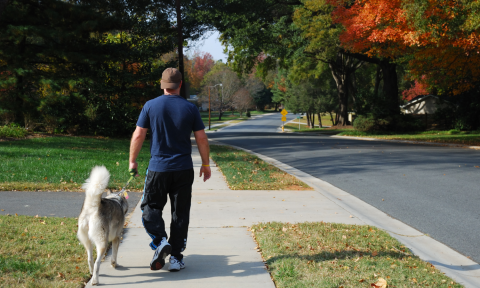Gambling and Mental Health

Mental Health Week (October 8-16) was an important reminder of how mental health is a part of all our lives.
This year’s theme focused on awareness, belonging, and connection, reflecting the important factors that help people maintain positive mental health and wellbeing.
Our mental health influences how we think, feel, and act. This affects how we manage stress, make choices, and connect with others.
Gambling harm can have a significant impact on the mental health and wellbeing of the person gambling and the people in their life.
Research shows that on average, one person’s gambling impacts six people around them. This might include partners, children, family, friends, co-workers, and the wider community.
We explore the impact of gambling harm on mental health and where to get help if you’re worried about yourself or someone else.
How can gambling harm impact mental health?
When you think about gambling-related harm, you may think of debt and relationship issues. But gambling can also have significant impacts on our psychological and emotional wellbeing.
It can cause stress, anxiety, depression, and low self-esteem when it becomes a problem.
Gambling harm can significantly impact individuals, families, friends, and people working in the gambling industry (e.g. pubs, clubs, casinos).
Individuals:
Gambling harm does not limit itself to a problem in isolation. It often exists alongside mental health issues. 2018-19 QLD Gambling Help Service data showed 90% of gamblers accessing the service reported problems with mood and personal relationships – such as feelings of anxiety or depression. 78% reported these problems as moderate or severe.
Often people with gambling problems have other issues that are impacting on their lives, employment, housing, and relationships.
Experiencing a mental health issue does not guarantee you will experience gambling harm. However, when someone has a mental health issue and they gamble frequently, there is more of a risk of harm across the spectrum.
Family and Friends:
It’s common for family and friends impacted by gambling harm to experience mood problems and emotional distress.
A recent study showed that 80% of people who had accessed support services for a family member’s gambling reported anxiety, stress, sadness, and anger from the impacts of another person’s gambling.
We offer tips for family and friends impacted by gambling harm in this blog post.
Workers in pubs and clubs:
Those working in gambling venues and environments are not immune to the impacts of gambling harm.
Workplace stress in a gambling environment may be caused by:
- Managing patrons with gambling-related losses
- Legal responsibility such as responsible service of alcohol and gambling
- Ethical concerns of providing duty of care to patrons while maintaining other work duties
- Overly stimulating environment such as noise of gaming machines, bright lights, and working late shifts
- Increased responsibility for patron welfare (e.g. seeing the red flags of gambling harm and being the first to offer support)
- Patrons potentially overloading their personal stories.
“From our club’s perspective, we try to have our team super aware of our members and guests’ behaviour and look for things out of the ordinary. We’re learning how to have positive conversations with our guests and help them where we can.” - Steve, Coolangatta Surf Club
Seeking help for gambling
The impact of gambling harm on mental health and wellbeing in our community spans across many people we interact with daily.
But unfortunately, only a small number of people will seek help to address their gambling-related issues.
It can be hard to talk about gambling-related problems due to stigma and shame. Individuals will often seek help for other issues – such as relationship problems or mental health conditions – before recognising gambling as an issue that needs to be addressed.
A 2020 NSW gambling survey found less than 1% of people who gambled had sought help for problems related to gambling in the past 12 months.
A Victorian study showed that as few as 10% of people classed in the highest harm category ‘problem gambler’ sought help in 2013.
It’s important for us all to keep talking about gambling harm and help reduce the stigma to encourage healthy help-seeking behaviour.
Early treatment leads to better outcomes. It’s never too early to seek help. Sharing your concerns with someone you trust is a good place to start. This may make it easier to think about your next steps, which may include reaching out to a professional.
“It might help to look at some positive ways to escape. Maybe go for a walk, hit the gym, or connect with an old friend. It’s really important to seek some assistance when you’re feeling low and at risk.”
- Steve, Coolangatta Surf Club
If gambling has become a problem for you or someone you know, free, confidential, and culturally appropriate help is available. We’re here for you and will work with you at your own pace.
You can talk to a counsellor by calling the 24/7 helpline on 1800 858 858.
Contact us
If gambling is impacting your life or a loved one's life, it's okay to reach out for help. It’s free and confidential.
Call the 24/7 Gambling Helpline on 1800 858 858
Face-to-face counselling locations




